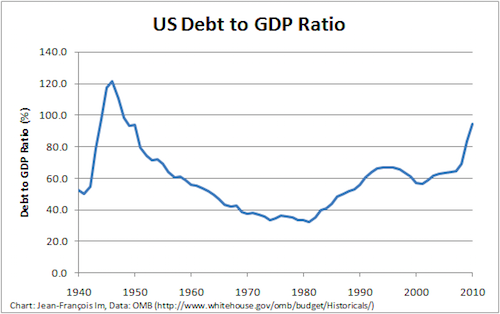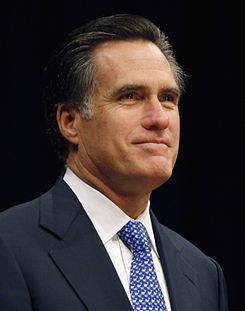Matthew Yglesias's Blog, page 2313
May 13, 2011
The Politics Of Not Addressing Greek Insolvency

(cc photo by simon_music)
Ryan Avent and Kevin Drum say it's not the economics that making can-kicking the Greece problem impossible, it's the politics. I agree that the politics is what's important here, but I think this is exactly what makes can-kicking so attractive.
Henry Farrell outlines the state of play:
So my worry is straightforward. Greece is not so big a problem that it cannot be kicked down the road by the Europeans indefinitely. So too, Ireland and Portugal, and perhaps even (with more straining) Spain. But the specific manner in which the can is being kicked down the road has consequences for European legitimacy. Greeks, Portuguese and Irish people don't like being at the sharp end of imposed austerity. They have obvious villains to blame for it – the EU (in particular the ECB and the Commission) and the 'Germans.' But Germans, Dutch people etc don't have much reason to like the EU these days either. For them, it is associated with a giant sucking noise pulling frugal German taxpayers' savings into the gaping maw of Greek pensioners. Neither those on the receiving or those on the giving end of current policies is very happy. And both have good reason to associate their unhappiness with the EU. And the EU does not have much legitimacy to spare in any event.
This, however, is precisely the genius of the status quo. Greeks are unhappy with what's happening, but Greeks would be unhappy with the results of a default too. Kicking the can lets Greek politicians try to put blame on the shoulders of the (vicious and cruel) German government and "the EU." Meanwhile, Germans are unhappy with what's happening, but Germans would be unhappy with the results of a default too. Kicking the can lets German politicians try to put the blame on the shoulders of the (indolent and corrupt) Greek government and "the EU." This is the dominant strategy for everyone involved except for "the EU" but "the EU" turns out to not really be anything that's accountable to anyone.
So I say: The can will be kicked, people will try to muddle through, and the ECB should (but won't) try to help (a little) with higher inflation.


SNAP: Too Much Of A Crappy Thing

There's really not much out there that's more annoying than the burgeoning genre of articles about food stamp recipients living high on the SNAP lifestyle or condescendingly informing people that they could be doing a better job of allocating their scarce SNAP dollars. So absolutely give Latoya Peterson's righteous indignation a good read before coming back here for some technocratic musings.
The basic problem with SNAP, as with much of American public policy, is that we're simultaneously trying to do public service delivery and income redistribution.
Food is really cheap in the United States of America. A family looking to sustain itself in a healthy manner can do so at extremely low cost through bulk purchases of dried beans, rolled oats, frozen vegetables, rice, and fruit juice. A program that was really narrowly aimed at preventing malnutrition among low-income Americans could be both extremely low cost and extremely prescriptive.
A separate issue is that being poor is a sucky experience as witnessed by, say, my proposed diet of bulk purchases of dried beans, rolled oats, frozen vegetables, rice, and fruit juice. By taking money away from people who have lots of money and giving it to people who have very little money, it is possible to effectuate large increases in the quality of life of poor people while doing extremely little to reduce the quality of life of the rich people. But when the point is to improve quality of life, a prescriptive attitude is pointless. Fun is often "bad for you" and different people's tastes differ. The correct thing to give people in order to make their loves more fun is money. People with more money in their pocket might want to spend it on Fritos or Perrier or a cell phone or beer or an Egg McMuffin or shoes or video games or movie tickets or whatever.
But American political culture is generally hostile to the idea of improving poor people's lives by giving them more money. So you wind up with a lot of things like SNAP. Viewed very narrowly as a nutrition program, it's not that well targeted and it costs more than it needs to. But viewed from the point of view of the overall quality of life of low-income Americans it's incredibly stingy.


The Widespread Occurrence of White Supremacist, Treasonous, and Pro-Slavery License Plates

The United States sure is a strange country:
[John] Adams runs the Sons of Confederate Veterans in Florida. What he wants to express on his license plate is his affinity with the Confederacy. A few years ago he designed a plate that reads "Confederate Heritage," with a rebel flag in the center.
It's a similar design currently on license plates in nine other states, including Alabama, Georgia, Maryland, Louisiana, Mississippi, North Carolina, South Carolina, Tennessee, and Virginia.
You read these stories now and again where Israelis take issue with some street or town square in Palestine or whatnot being named after a "martyr" who killed Israeli civilians. It's conventional to fight back with citations to some Israeli monument or other to an Irgun guy. But at least Israelis and Palestinians are genuinely in a state of conflict. The Civil War is over and American public culture generally avows the principle that abiding by election results is good, armed rebellion against the US government is bad, and chattel slavery is very bad. Nonetheless monuments to the idea of launching an armed rebellion against the US government when a political party hostile to chattel slavery wins an election are incredibly widespread.


Discredit the Medium to Devalue the Message
By Alyssa Rosenberg
I was trying so, so hard to avoid wading into the continuing nonsense of Common's invitation to the White House, because to acknowledge this nonsense at all is to dignify it in a way it profoundly does not deserve. But now, Bill O'Reilly is flacking an interview with David Jones, the president of the State Troopers Fraternal Association of New Jersey, in which Jones stretches to declare that the Obamas' invitation represents a profound insult to the widows of law enforcement officers killed on the job and calls Common a "this mutt, this nitwit, complete fraud." It's the perfect distillation of what really constitutes the perpetual fight against hip-hop: putting your hands over your ears and substituting insults for the "nya, nya, nya." Blocking people from the conversation is the most efficient way of avoiding listening to them—particularly when it comes to critiques of law enforcement.
This is why I'm frustrated by the defenses of Common's invitation on the grounds that he's a big ol' teddybear, that he's Elmo' friend, that he's a Christian (albeit one pastored by Jeremiah Wright), that he's in Gap ads, that he's as bland a representation of hip-hop as we can possibly get. That doesn't really win us this battle, it doesn't deter people like Jones. And it sets us up to lose the next fight, when we want to see someone invited to the White House who doesn't meet our own narrow and self-defeating definition of acceptability.
Poets aren't politicians, and that means they often play their most valuable role in expanding the debate by being off-message. Murdering cops isn't actually an appropriate response to police brutality or an effective way to stop it, but that doesn't actually make the grief and rage at the end of "Cop Killer" any less legitimate. Do I wish "Fuck Tha Police" didn't have the lines "I'm a sniper with a hell of a scope / Takin out a cop or two, they can't cope with me" or "Without a gun and a badge, what do ya got? / A sucka in a uniform waitin' to get shot"? Yeah, but that doesn't make the song any less ferocious or funny, or take away the economy and power of the bald statement that "police think / They have the authority to kill a minority." It's easy for people who don't want to reckon with that to move to exclude the whole song, a whole pantheon of artists from the realms of discussion. It's a lot harder to simultaneous critique of the worst in hip-hop while forcefully arguing for the inclusion of the whole, but that doesn't mean it's strategic to go the easiest route.


Adventures in Financial Market Efficiency
Some history:
Did something happen to the quality of Google's products in January 2008 that made the company less valuable? And by coincidence something else happened to Apple's products at the exact same time? And the problems were roughly of the same magnitude and duration with the same false dawn followed by July '08 renewed downturn and the same January 2009 low point? Or can we just be reasonable and say that obviously there's some murky element of market psychology gyrating fairly wildly across a time when both firms were steadily rolling out successful products?
The fact that these gyrations are unpredictable and there seems to be no reliable way of making a profit off them is interesting and important, but it seems odd to dignify it with the valorizing term "efficient." As it happens, these are both large cash-rich firms whose actual operations were unaffected by the Jan 2008 — Jan 2010 sag in their equity value. The iPhone 3G and 3GS, the Android operating system, the new MacBook Airs, etc. were all released and all successful and there was no problem of lack of equity or lack of creditworthiness. But not all firms are so favorably situated. Plenty of good ideas are developed by people who don't work for large, established cash-rich firms that can shrug off generalized financial market panics.


Leslie Knope Is Hot
By Alyssa Rosenberg
Earlier in the week, commenter martinhduke said in the discussion of why 30 Rock has gone downhill that part of the reason the show is in trouble is that:
Liz as straight man anchored the show in the early seasons. I think it also arises from Fey becoming a little more comfortable with acting as the years passed, so that she shifted from playing herself to a more outrageous character. Unfortunately, "Tina Fey" is a much more compelling character than late-season Liz Lemon.
I think that's true. And I thought that last night's episode of Parks and Recreation was a great illustration of how that show has become better than 30 Rock in part by being unafraid to treat Leslie Knope like she's attractive. It turns out a drunk Amy Poehler commanding someone to "dance up on me" walks a very funny line between slight ridiculousness and total plausibility:
But more importantly, treating Leslie if she's attractive yields more potential plot lines and more kinds of jokes than treating Liz Lemon as if she's a freak of nature. If Liz is an utter disaster, every relationship story has to end the same way, with her doing something weird, or awkward, or distasteful. No matter how baroque the details are, and they have gotten baroque, the story's always essentially the same. But because Leslie's attractive, the writers can focus on the actual dynamics of her relationships and tell different kinds of stories. Tina Fey may have given in and embraced the idea that Liz Lemon crazy by her own definition, "a woman who keeps talking even after no one wants to fuck her anymore." But it's a lot more fun to watch Poehler beat back the point at which Leslie will be declared crazy by solidly establishing that people still want to fuck her.


A Simple Model Of Why Congress Can't Pass A Budget Deal
Representative Jim Cooper of Tennessee has a lead article in the Boston Review on the subject of institutional reform to congress that anchors a larger "fixing congress" package that's worth your time. Representative Cooper's article raises a number of issues, but it's clear that the core issue to him is that congress is "broken" in the sense that it can't agree to a budget that's balanced over the long term or even one that features a stable debt:GDP ratio.
In that sense it's a little bit odd that he cites the congresses of the 1980s as more functional than the current one, since it's plain that the eighties are when the problem arose:

But more broadly, I think it's quite simple to explain why congress can't—and won't—solve this issue. First ask: Would a debt deal accomplish anything useful in the short-term? Many people think that it wouldn't. And people who think that a debt deal wouldn't accomplish anything useful will naturally be reluctant to make concessions in pursuit of a goal that's not substantively important. Many other people think that a debt deal would accomplish something useful for the US economy in the short-term. Which is another way of saying that it would guarantee the re-election of incumbent President Barack Obama. Which means that Republicans who think a debt deal would have a positive impact should refuse to make concessions in pursuit of a deal, Republicans who think a debt deal wouldn't have a positive impact should also refuse to make a deal, and of course Democrats who think a debt deal wouldn't have a positive impact should also also refuse to make a deal.
Or if you prefer to think in terms of political message/optics/etc rather than economic fundamentals just consider the White House signing ceremony for a big bipartisan deal. How's Tim Pawlenty supposed to react to that? Does he say, "well, it turns out that Barack Obama is actually a visionary leader, an effective legislator, and a brilliant pragmatic compromiser who's addressing the nation's problems but you should elect me anyway?" Of course not. He needs to denounce the deal as a sellout of conservative principles. And for all the reasons that T-Paw needs to denounce the deal, so do all of T-Paw's rivals for the nomination. And since John Boehner and Mitch McConnell know that this is what will happen, they should refuse to make a deal.
People often seem to me to have an unwarranted faith that these problems can be overcome. In a comparative context, American-style political systems normally break down.


National Review Turns On Mitt Romney

I had held out some notion that conservatives elites might be willing to forgive Mitt Romney's shameful record of helping the population of Massachusetts get health insurance. After all, many conservatives backed Romney in 2008 even when they knew his record. But yesterday's health care speech seems to have strangled that in the crib, as today's NR editorial makes clear:
[W]hen conservatives argue that Obamacare is a threat to the economy, to the quality of health care, and to the proper balance between government and citizenry, we do not mean that it should be implemented at the state level. We mean that it should not be implemented at all. And Romney's health-care federalism is wobbly. The federal government picked up a fifth of the cost of his health-care plan. His justification for the individual mandate also lends itself naturally toward federal imposition of a mandate. He says that the state had to make insurance compulsory to prevent cost shifting, because federal law requires hospitals to treat all comers, insured or not. But if federal law is the source of a national problem, it makes no sense to advocate a state-by-state solution.
What's strange about this editorial is that it involves NR pretending that somehow it's Romney who's changed since they endorsed him four years ago rather than conceding that they've simply changed their standards of what counts as conservative health policy. Read the 2007 Romney endorsement editorial:
Our guiding principle has always been to select the most conservative viable candidate. In our judgment, that candidate is Mitt Romney, the former governor of Massachusetts. Unlike some other candidates in the race, Romney is a full-spectrum conservative: a supporter of free-market economics and limited government, moral causes such as the right to life and the preservation of marriage, and a foreign policy based on the national interest. [...]
Like any Republican, he would have an uphill climb next fall. But he would be able to offer a persuasive outsider's critique of Washington. His conservative accomplishments as governor showed that he can work with, and resist, a Democratic legislature. He knows that not every feature of the health-care plan he enacted in Massachusetts should be replicated nationally, but he can also speak with more authority than any of the other Republican candidates about this pressing issue. He would also have credibility on the economy, given his success as a businessman and a manager of the Olympics.
We've gone quite suddenly from the fact that Romney can speak with more authority than any other Republican about the pressing issue of health insurance to one in which Romney's health care record is a dangerous flirtation with policies that threaten the economy and the basic framework of American liberty. If the issue is that NR's writers have actually changed their mind then they should give some reasons and not just act like Romney's a scoundrel. Obviously it's possible to construct workable health care policies that don't have these features (ask Canada, or the UK, or Singapore, or…) but when National Review put two of its best policy writers to the task of framing a constructive alternative to the Affordable Care Act what they came up with were some decent ideas that can't be made to work without adding a Romney/Obama-style mandate or some other basically isomorphic policy aimed at getting everyone into the risk-pooling system.


Will Ferrell, Beyond the Wild and Crazy Guy
By Alyssa Rosenberg
People may complain that he's a professional buffoon, or that it's a bit boring to honor two comedians with similar trajectories two years in a row, but I must say, I'm rather happy that Will Ferrell will be receiving this year's Mark Twain Prize for Humor. Ferrell has a lot of mediocre projects on his resume—Semi-Pro and Blades of Glory strike me as particularly unnecessary, and I say that as someone who paid to see both movies in theaters—but he's an extraordinarily funny broad comedian. And I think increasingly, he's taking on projects that showcase his ability to quiet all the way down and very productively create space for people to be funny around him.
Stranger than Fiction is a wonderful example of that: Ferrell is as straight a straight man as possible as an IRS auditor who discovers that he also happens to be a character in a novel Emma Thompson is writing, and that when she kills him off in the story, he'll probably die in real life. It's almost jarring to watch him in a scene like this one, where he's awkwardly funny like a normal person, as opposed to uproarious:
An even better example is the scene where Dustin Hoffman asks Ferrell a series of questions designed to determine what kind of story he's in, and a bewildered Ferrell tries to provide honest answers to increasingly baroque queries, ending in "Aren't you relieved to know you're not a Golem?" Ferrell is entirely reactive in the scene, and his escalating confusion only serves to make Hoffman funnier. It's easy to forget that being a good straight man is as much of a skill as being a wild man. I haven't seen Everything Must Go yet, but Ferrell has talked about how much he loved making Stranger Than Fiction, and how he saw Everything Must Go as a similar project, which strikes me as a good sign.
I'm not saying Ferrell should give up playing fast, loose, and out of control. The world would be a poorer place without Anchorman or Old School—another one of Ferrell's singular talents is to play manchildren in a way that's a very funny critique of men who resist adulthood, in contrast to Judd Apatow's gentler treatment of less-exaggerated characters. But I can see why he'd get tired of the expectation that he's always in Wild and Crazy Guy mode, and audiences are cheating themselves if that's all they're able to tolerate from him.


International Law Is Made By Powerful States
I finally got around to reading Noam Chomsky's much-criticized statement on Osama bin Laden and there's really something almost amazingly naive about his opening line:
It's increasingly clear that the operation was a planned assassination, multiply violating elementary norms of international law.
Contrast that with, say, the United Nations Security Council: [...]
Recalling the "heinous" terrorist attacks of 11 September 2001 in New York, Washington, D.C., and Pennsylvania, as well as the numerous attacks perpetrated by the Al-Qaida network around the world, the Security Council welcomed today the news that Osama bin Laden would never again be able to perpetrate such acts of terrorism.
Expressing its deepest condolences to the victims of terrorism and their families, the Council stressed the need for the full implementation of all its resolutions and statements on terrorism, notably resolutions 1267 (1999), 1373 (2001), 1624 (2005), 1963 (2010) and 1904 (2009), as well as other applicable international counter-terrorism instruments.
And, indeed, the referenced UNSCR 1373 is full of international legal authorization for killing people, specifically deeming the 9/11 attacks events that, "like any act of international terrorism, constitute a threat to international peace and security, Reaffirming the inherent right of individual or collective self-defence, Reaffirming the need to combat by all means, in accordance with the Charter of the United Nations, threats to international peace and security caused by terrorist acts." And, again, in case it's not clear please read Chapter VII of the UN Charter which says (though of course not deploying such blunt language) that when the Security Council wants to combat a threat to international peace and security it can use military force.
Long story short, neither Osama bin Laden nor the government of Pakistan has any standing in international law to complain. Bin Laden was not, in international legal terms, a "criminal" who we have to attempt to apprehend. He was an ongoing threat to international peace and security who the nations of the world were urged to "combat by all means" and the whole point of the Security Council is that it overrides national sovereignty.
That's not to say one can raise no objections to this. Viewing terrorism as a primarily military problem is a mistake that led the United States into a lot of policy errors. I hope we'll turn away from this. And of course if you're Pakistani you might look at this series of events and say that international law looks kind of bogus. They didn't even get a vote on the Security Council! What kind of sense does it make for the US, China, and Russia to get together and tell the world which countries may and may not be subject to SEAL raids? This would also be a very valid point for a political radical like Chomsky to raise. But it is what it is. International law is made by states, powerful states have a disproportionate role in shaping it, and powerful states have obvious reasons to not be super-interested in the due process of suspected international terrorists or the sensibilities of mid-sized countries. Many people are pacifists and/or strong critics of western military power, and that's fine. But it's simply not the case that international law is identical with these policy preferences. On the contrary, one of the main functions of the international institutional order is precisely to legitimate the use of deadly military force by western powers.


Matthew Yglesias's Blog
- Matthew Yglesias's profile
- 72 followers



